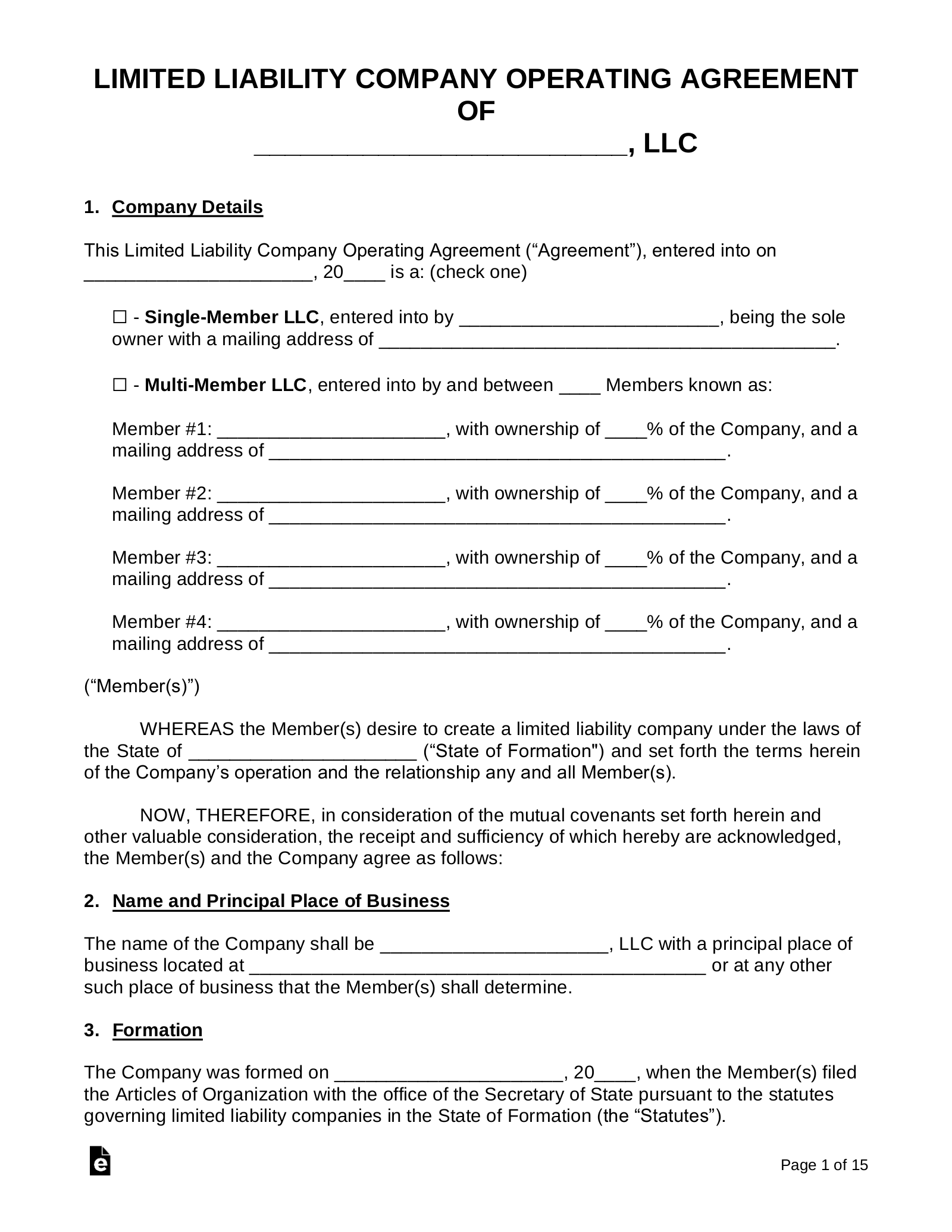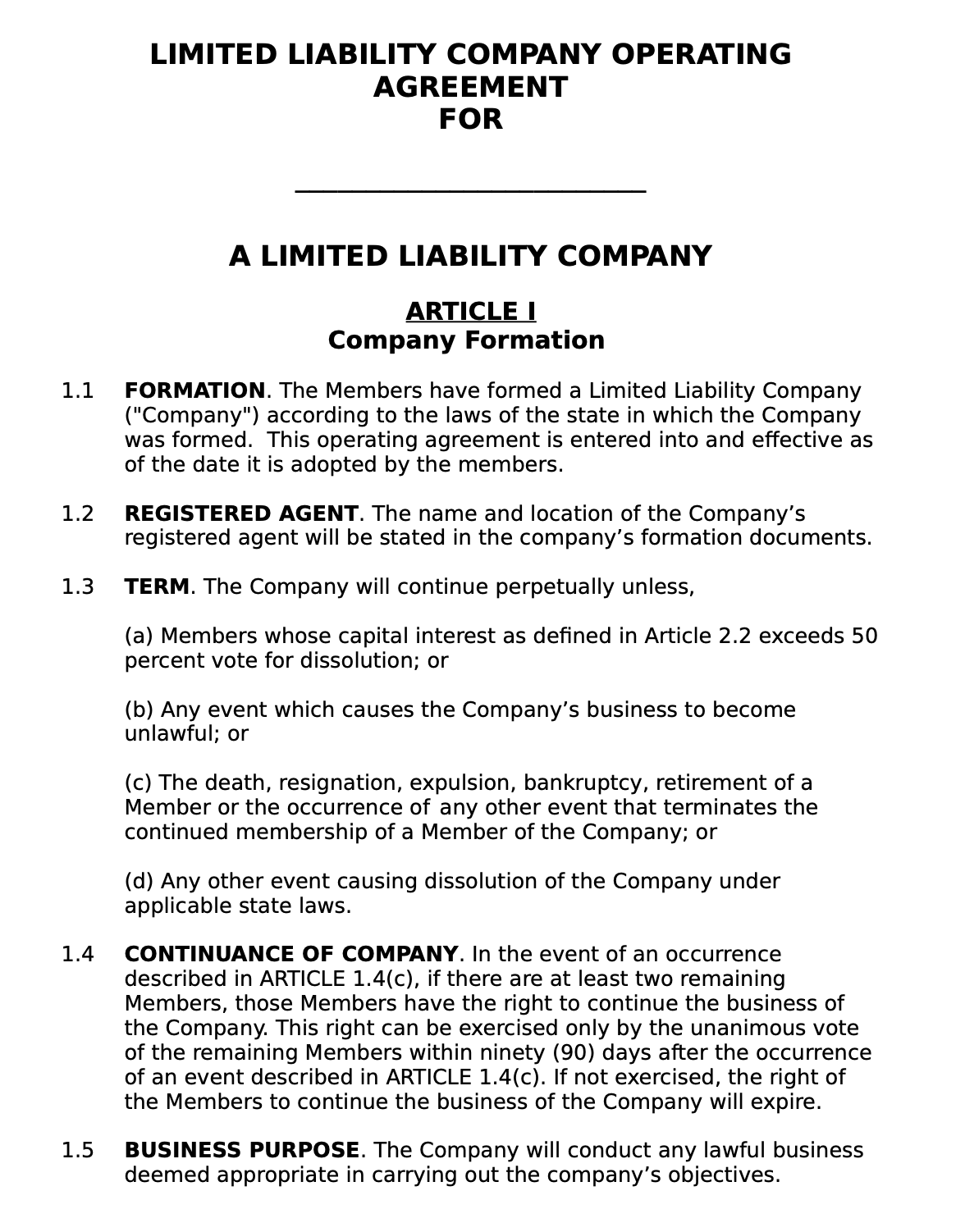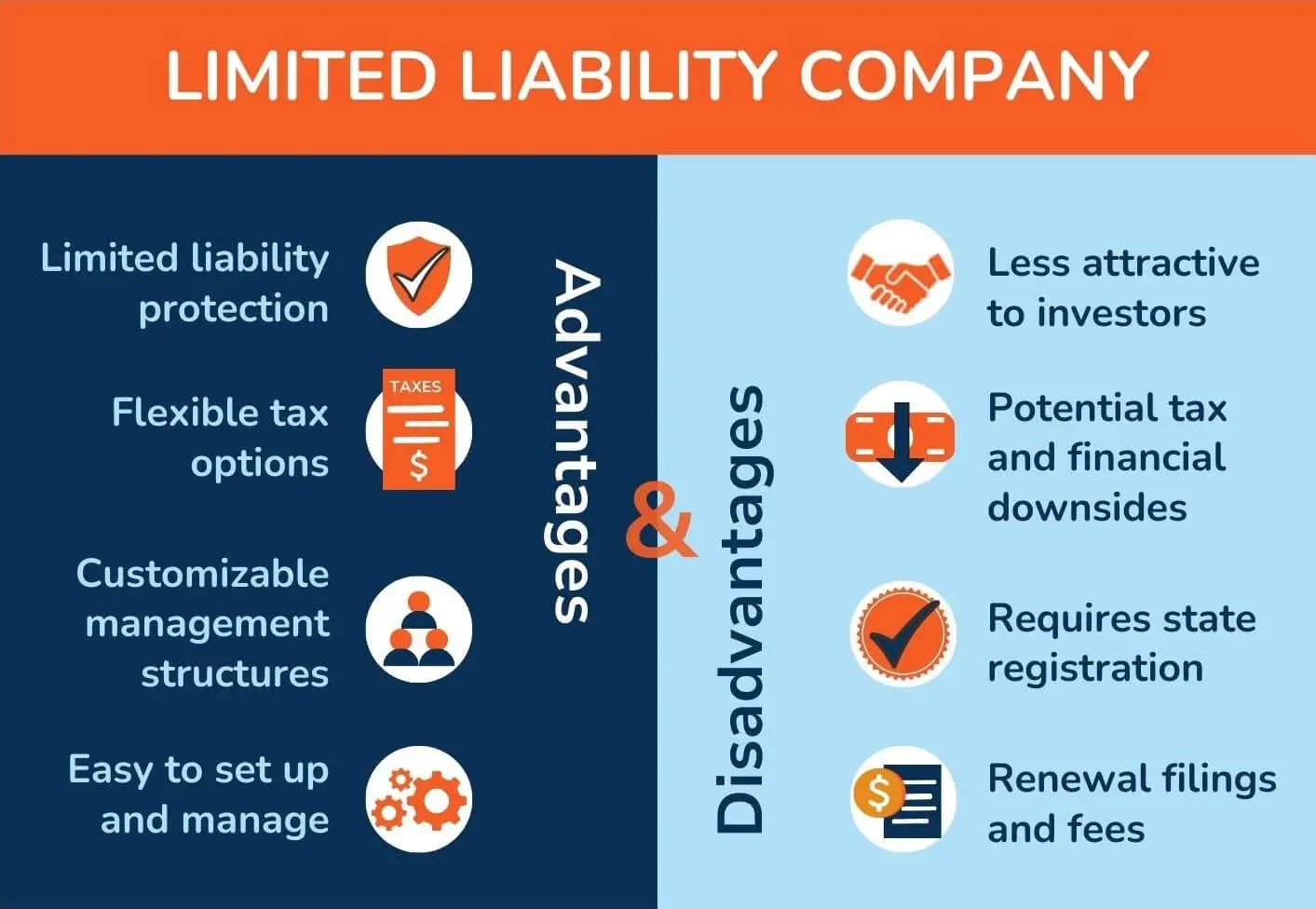Iowa LLC Operating Agreement
An Iowa LLC Operating Agreement serves as a foundational document outlining the structure, management, and operational guidelines for a limited liability company (LLC) within the state. While Iowa law does not legally require LLCs to adopt an operating agreement, creating one is highly recommended to establish clear expectations among members, define roles and responsibilities, and protect the company’s limited liability status. This customizable document addresses critical aspects such as profit distribution, decision-making processes, membership changes, and dispute resolution. By formalizing these terms, an operating agreement helps prevent misunderstandings, ensures compliance with state regulations, and provides a framework for the LLC’s long-term stability and success.
- Understanding the Iowa LLC Operating Agreement: Key Components and Legal Requirements
- Is an operating agreement required for an LLC in Iowa?
-
Can I write my own operating agreement for my LLC?
- What Are the Legal Requirements for an LLC Operating Agreement?
- What Are the Benefits of Drafting Your Own Operating Agreement?
- What Key Clauses Should Your Operating Agreement Include?
- What Are Common Mistakes to Avoid When Writing an Operating Agreement?
- When Should You Consult an Attorney for Your Operating Agreement?
- Does an LLC always have an operating agreement?
- What are the pitfalls of an LLC operating agreement?
- Frequently Asked Questions About LLCs (FAQs)
Understanding the Iowa LLC Operating Agreement: Key Components and Legal Requirements
What Is an Iowa LLC Operating Agreement?
An Iowa LLC Operating Agreement is a legal document outlining the ownership structure, management rules, and operational procedures for a Limited Liability Company (LLC) registered in Iowa. While not legally required by the state, it is critical for defining member roles, profit distribution, and dispute resolution. It ensures compliance with Iowa’s LLC statutes (Chapter 489 of the Iowa Code) and protects the company’s limited liability status.
See AlsoSingle Member LLC Operating Agreement: Florida| Purpose | Defines internal operations and member rights |
| Legal Status | Not mandated by Iowa but highly recommended |
| Key Elements | Management structure, profit sharing, voting rights |
Why Is an Operating Agreement Important for Iowa LLCs?
An Operating Agreement provides clarity and legal protection for Iowa LLCs. Without it, the LLC defaults to Iowa’s default statutes, which may not align with members’ intentions. It prevents disputes by formalizing profit splits, decision-making processes, and dissolution protocols. Banks and investors may also require it to validate the LLC’s legitimacy.
| Asset Protection | Shields personal assets from business liabilities |
| Conflict Prevention | Clear rules reduce member disagreements |
| Tax Flexibility | Allows members to choose tax classifications |
How to Draft an Iowa LLC Operating Agreement
Drafting an Iowa LLC Operating Agreement involves outlining membership details, management roles, and financial protocols. Members should specify whether the LLC is member-managed or manager-managed, define capital contributions, and establish procedures for adding/removing members. Consulting an attorney ensures compliance with Iowa law.
See AlsoHow to Buy Stake in a Company| Step 1 | Define ownership percentages and roles |
| Step 2 | Specify management structure |
| Step 3 | Include dispute resolution clauses |
Amending an Iowa LLC Operating Agreement
Amending the Operating Agreement requires member approval, as outlined in the original document. Most Iowa LLCs specify a voting threshold (e.g., majority or unanimous consent) for changes. Amendments must be documented in writing and filed with the company records.
| Amendment Process | Voting, documentation, member signatures |
| Common Reasons | Adding members, changing profit shares |
| Legal Compliance | Align with Iowa Code § 489.110 |
Iowa LLC Operating Agreement vs. State Default Rules
Without an Operating Agreement, Iowa LLCs default to state laws under Chapter 489. These rules may impose equal profit distribution regardless of contributions and require unanimous consent for major decisions. Custom agreements override defaults, offering tailored governance.
See Also Venture Capital Executive Compensation Survey
Venture Capital Executive Compensation Survey| Default Rule | Equal profit distribution |
| Custom Agreement | Flexible profit splits |
| Decision-Making | Unanimous vs. majority vote |
Is an operating agreement required for an LLC in Iowa?

Is an Operating Agreement Legally Required for an LLC in Iowa?
In Iowa, an operating agreement is not legally required to form or operate an LLC. The state does not mandate this document as part of the formation process. However, while not compulsory, it is strongly recommended to create one to establish clear guidelines and protect the business structure. Without an operating agreement, the LLC defaults to Iowa’s default LLC statutes, which may not align with the members’ intentions.
See AlsoStarting an Online Business in NY- No state law in Iowa requires an operating agreement for LLC formation.
- Default rules under the Iowa LLC Act govern the LLC if no agreement exists.
- An operating agreement helps avoid disputes and clarifies member roles.
Key Benefits of Having an Operating Agreement for an Iowa LLC
Creating an operating agreement offers legal and operational advantages, even though it is optional. It allows members to customize rules for management, profit distribution, and decision-making, reducing reliance on generic state laws. This document also enhances credibility with banks, investors, and courts.
- Defines ownership percentages and profit-sharing arrangements.
- Establishes procedures for adding or removing members.
- Protects members’ limited liability status by formalizing the business structure.
What Happens If an Iowa LLC Lacks an Operating Agreement?
Without an operating agreement, an Iowa LLC is governed by the default provisions of the Iowa Code Chapter 489. This can lead to unintended outcomes, such as equal profit distribution regardless of capital contributions or majority rule in decision-making. Disputes may also arise due to unclear roles and procedures.
- Default rules may not reflect the members’ original intentions.
- Decision-making authority defaults to majority vote, which might disadvantage minority members.
- Dissolution or transfer of ownership could become complicated without predefined terms.
How to Draft an Operating Agreement for an Iowa LLC
To create a valid operating agreement, members should outline key provisions tailored to their business needs. While Iowa does not require filing this document, it should be signed by all members and kept with business records. Consulting a legal professional ensures compliance and completeness.
- Include details about management structure (member-managed vs. manager-managed).
- Specify voting rights, meeting protocols, and dispute resolution methods.
- Address scenarios like member withdrawal, dissolution, or buyout clauses.
Essential Clauses to Include in an Iowa LLC Operating Agreement
A well-drafted operating agreement should cover critical areas to prevent conflicts and ensure smooth operations. Customizable clauses allow flexibility, while standard provisions provide a legal safety net for unforeseen circumstances.
- Capital contributions and procedures for additional funding.
- Profit and loss allocation methods.
- Processes for amending the agreement and dissolving the LLC.
Can I write my own operating agreement for my LLC?

Yes, you can write your own operating agreement for your LLC. While most states do not legally require an operating agreement, creating one is highly recommended to establish clear rules, roles, and procedures for your business. A self-drafted agreement allows you to customize terms to fit your LLC’s needs, but it must comply with your state’s LLC laws. Using templates or consulting an attorney can help ensure critical details aren’t overlooked.
What Are the Legal Requirements for an LLC Operating Agreement?
An LLC operating agreement must align with your state’s statutory guidelines, though specific requirements vary. Most states allow broad flexibility in drafting terms, provided they don’t violate existing laws.
- State compliance: Ensure clauses adhere to your state’s LLC regulations (e.g., California’s requirement to outline member voting rights).
- Mandatory provisions: Some states require specific language, such as dissolution procedures or profit-sharing structures.
- Enforceability: The agreement must be signed by all members to be legally binding, even if not filed with the state.
What Are the Benefits of Drafting Your Own Operating Agreement?
Customizing your operating agreement offers flexibility and control over your LLC’s operations, reducing future disputes.
- Tailored rules: Define roles, profit distribution, and decision-making processes to match your business model.
- Conflict prevention: Clarify procedures for member exits, capital contributions, and dispute resolution.
- Credibility: Banks and investors often require an operating agreement to verify your LLC’s structure.
What Key Clauses Should Your Operating Agreement Include?
A comprehensive operating agreement addresses critical aspects of your LLC’s governance and operations.
- Management structure: Specify whether the LLC is member-managed or manager-managed.
- Capital contributions: Detail initial investments and rules for additional funding.
- Dissolution terms: Outline conditions for winding down the business, including asset distribution.
What Are Common Mistakes to Avoid When Writing an Operating Agreement?
Avoiding errors in your operating agreement ensures clarity and legal validity.
- Overly vague language: Ambiguous terms can lead to disputes (e.g., undefined “profit distribution timelines”).
- Ignoring state laws: Failing to incorporate mandatory state-specific provisions may invalidate clauses.
- Not updating: Revise the agreement as your LLC evolves, such as adding new members or changing roles.
When Should You Consult an Attorney for Your Operating Agreement?
While DIY agreements work for simple LLCs, legal advice is crucial in complex scenarios.
- Multi-member disputes: An attorney can mediate conflicting interests and draft equitable terms.
- Complex ownership structures: Issues like varying voting rights or foreign LLC registration require expertise.
- Regulatory compliance: Lawyers ensure adherence to industry-specific laws (e.g., healthcare or finance).
Does an LLC always have an operating agreement?

No, an LLC (Limited Liability Company) is not always legally required to have an operating agreement in every U.S. state. However, while states like California, New York, Delaware, and Missouri mandate its creation, others do not enforce this requirement. Even in states where it’s optional, drafting an operating agreement is strongly recommended to define member roles, profit distribution, and dispute resolution procedures. Without one, the LLC defaults to state-specific default rules, which may not align with the owners’ intentions.
Is an Operating Agreement Legally Required for an LLC?
While not universally required, some states legally mandate an operating agreement for LLC formation. For example:
- California and New York require LLCs to adopt an operating agreement.
- Even in states without this requirement, banks or investors may demand one for financial transactions.
- Failure to create one in mandatory states can lead to penalties or loss of liability protection.
Why Should an LLC Have an Operating Agreement Even If Not Required?
An operating agreement provides legal clarity and operational structure. Key benefits include:
- Defining member ownership percentages and profit-sharing arrangements.
- Establishing management roles (member-managed vs. manager-managed).
- Protecting the LLC’s limited liability status by separating personal and business assets.
What Risks Arise Without an Operating Agreement?
LLCs without an operating agreement face significant risks, such as:
- Defaulting to state-governed rules that may override member preferences.
- Increased potential for internal disputes over decision-making or profit distribution.
- Jeopardizing the liability shield, exposing personal assets to business debts.
What Key Components Should an Operating Agreement Include?
A comprehensive operating agreement typically covers:
- Member details: Names, contributions, and ownership stakes.
- Voting procedures and decision-making hierarchies.
- Dissolution terms for winding down the LLC.
How Do State Laws Influence Operating Agreement Requirements?
State laws dictate whether an operating agreement is optional or mandatory. For instance:
- Delaware allows oral agreements but strongly advises written documentation.
- Texas does not require filing the agreement but recommends retaining a copy internally.
- Multi-state LLCs must ensure compliance with the home state’s regulations.
What are the pitfalls of an LLC operating agreement?

1. Ambiguity in Management and Decision-Making Roles
A poorly drafted LLC operating agreement often fails to clearly define management roles and decision-making processes. This can lead to conflicts among members, especially during critical business decisions. Common issues include:
- Unclear division between member-managed and manager-managed structures.
- Lack of voting thresholds for major decisions, such as mergers or asset sales.
- No procedures for resolving deadlocks, resulting in operational paralysis.
2. Inadequate Profit and Loss Distribution Terms
Many LLC agreements overlook precise terms for profit-sharing and loss allocation, leading to disputes. Key pitfalls include:
- Assuming equal distributions without aligning them with capital contributions or effort.
- Failing to account for tax implications, such as self-employment taxes on allocated profits.
- Ignoring scenarios where profits are reinvested versus distributed, causing member dissatisfaction.
3. Insufficient Dissolution or Exit Clauses
Without clear exit strategies, LLCs risk chaotic dissolution or member departures. Critical oversights often involve:
- No buyout provisions for members wanting to leave or sell their interests.
- Unaddressed death or incapacity of a member, leading to legal complications.
- Vague terms for dissolving the LLC, including asset division and debt repayment.
4. Non-Compliance with State-Specific Requirements
LLC operating agreements must adhere to state laws, but many overlook jurisdictional nuances. Risks include:
- Failing to include mandatory clauses required by the state, such as registered agent details.
- Ignoring annual reporting or fee obligations, risking penalties or loss of LLC status.
- Using generic templates that don’t reflect state-specific case law or regulations.
5. Overlooking Dispute Resolution Mechanisms
Disagreements among members can escalate without predefined dispute resolution processes. Common gaps include:
- No mediation or arbitration clauses, forcing costly litigation.
- Unclear guidelines for handling breaches of the agreement, such as member misconduct.
- Failure to define confidentiality or non-compete terms, risking business interests.
Frequently Asked Questions About LLCs (FAQs)
Is an Operating Agreement legally required for an LLC in Iowa?
No, Iowa does not legally require LLCs to have an Operating Agreement. However, creating one is strongly recommended to establish clear rules for ownership, management, and operations. Without it, your LLC will default to Iowa’s state laws, which may not align with your business needs. An Operating Agreement also adds credibility and helps protect your limited liability status by demonstrating a formal business structure.
What key provisions should an Iowa LLC Operating Agreement include?
A comprehensive Iowa LLC Operating Agreement should outline member ownership percentages, profit and loss distribution, management structure (member-managed vs. manager-managed), and procedures for adding or removing members. It should also address voting rights, meeting protocols, and steps for dissolution. Including dispute resolution methods and buyout clauses can prevent future conflicts.
Can a single-member LLC in Iowa benefit from an Operating Agreement?
Yes, even a single-member LLC in Iowa should have an Operating Agreement. It reinforces the separation between personal and business assets, which is critical for maintaining liability protection. The agreement can also outline operational procedures, succession plans, and rules for admitting future members. Banks or lenders may request it to verify your LLC’s legitimacy when opening accounts or securing loans.
How do I amend an existing Iowa LLC Operating Agreement?
To amend an Iowa LLC Operating Agreement, review the amendment clause within the original document, which typically requires a member vote or unanimous consent. Changes must be documented in writing, signed by all members, and kept with your LLC records. For major revisions, consult a legal professional to ensure compliance with Iowa law and avoid unintended tax or legal consequences. Updates do not need to be filed with the state unless they alter information in your Articles of Organization.
Leave a Reply

Our Recommended Articles